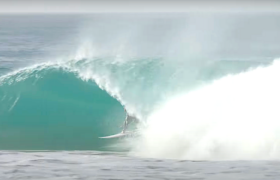A tricky game of wash selling and dividend stripping.
The eighty-one-year-old founder of Billabong, Gordon Merchant, has been slugged with a $50 million bill from the Australian Tax Office, which includes a six-ish mill fine, after advice he received from a company called EY to minimise his tax bill turned out to be, well, not so rock solid.
From what I can glean from the finance press, Merchant, who let’s be historically fair is a significant player in not just the clothing game but surfboard design with his tucked-under edge rail, was advised to sell a wad of his Billabong shares to create a capital loss which he could offset against the terrific profits he made from from the $111 million sale of the bioplastics manufacturer Plantic Technologies back in 2015.
Merchant was also advised to forgive fifty-five mill in loans to Plantic Tech to boost the sale price.
A tricky game of wash selling and dividend stripping.
So, here’s how it works!
In 2014, Merchant sells ten million of his Billabong shares for a little under six mill losing, on paper, almost sixty-mill.
Plantic gets sold for $111 mill the following year, the price inflated by the removal of the loans, Merchant’s tax bill gets reduced, and everyone’s real happy.
Everyone except the tax office, who audits Merchant’s companies and increases his personal tax bill by $30.6 million. Two of his biz’s are assessed to owe a further $12.9 million and a $6.4 million penalty is thrown in for laughs.
Merchant appealed the Tax Office’s decision in court and lost.
Merchant is now suing the company that gave him the bum advice.







